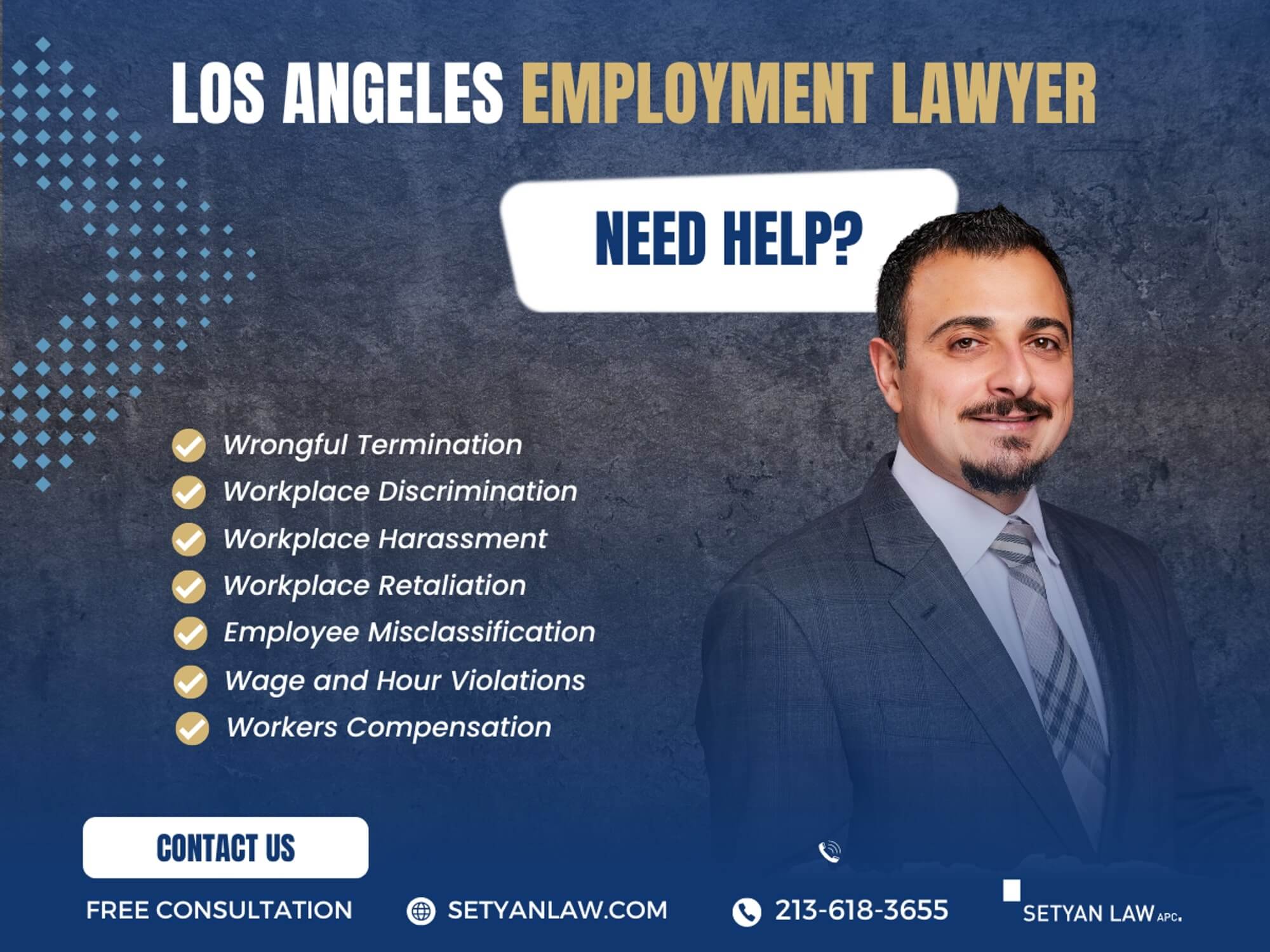Updated October 1, 2025
Domestic Violence Survivors: Protections in the Workplace
California stands at the forefront of providing comprehensive workplace protections for individuals affected by domestic violence, sexual assault, stalking, and other traumatic circumstances. These legal safeguards ensure that survivors can maintain their employment while addressing the aftermath of such experiences. For employers, understanding these obligations is essential to creating supportive workplaces and avoiding potential legal complications.
The Golden State recognizes that employment stability plays a crucial role in helping survivors rebuild their lives. Through various legislative measures, California has established a framework that balances the needs of affected employees with the operational requirements of businesses. These protections encompass time off for specific purposes, reasonable workplace accommodations, and strong anti-discrimination provisions.
Navigating these requirements can be challenging for both employers and employees. This guide aims to clarify the rights and responsibilities under California law, providing a comprehensive overview of leave entitlements, accommodation requirements, and best practices for implementation. By fostering workplaces that support survivors, employers not only fulfill their legal obligations but also contribute to the healing and recovery of those affected by violence.
Understanding these protections is particularly important given the prevalence of domestic violence and its impact on workplace productivity and employee wellbeing. With proper knowledge and implementation, California employers can create environments where survivors feel supported while maintaining business continuity.
Defining "Victim" Under California Law
California law provides specific protections for employees who qualify as "victims" under statutory definitions. This classification extends beyond the individual directly experiencing violence to encompass family members in certain circumstances. Understanding who qualifies as a victim is the first step in properly implementing these workplace protections.
A "victim" under California law refers to an individual who has experienced a "qualifying act of violence." This definition has been expanded through recent legislative updates to include a broader range of circumstances. Qualifying acts include domestic violence, sexual assault, and stalking, regardless of whether anyone was arrested, prosecuted, or convicted for these acts. The law also covers individuals who have experienced bodily injury or death threats, exposure to dangerous weapons, or actual or threatened use of force resulting in physical injury.
The definition extends protection to family members of victims as well. This includes the victim’s spouse, parent, child, sibling, or anyone else related by blood or marriage. It also encompasses those who regularly reside in the victim’s household or who previously resided there. This inclusive approach recognizes that violence affects not only the direct victim but also their support network.
California’s definition also acknowledges that victimization can occur through various means. The law covers traditional forms of violence as well as emerging threats, ensuring comprehensive protection regardless of how the harm manifests. This inclusive approach reflects California’s commitment to addressing the full spectrum of violence and its impacts.
For employers, this broad definition means that a significant portion of their workforce may qualify for these protections at some point. Understanding the scope of who is considered a victim helps organizations properly implement leave policies and accommodation procedures in compliance with state law.
Leave Entitlements for Victims
California law provides several types of leave entitlements for employees who are victims of qualifying acts of violence. These provisions ensure that affected individuals can address their immediate needs without jeopardizing their employment status. The specific entitlements vary based on the purpose of the leave and the size of the employer.
Leave for Legal Proceedings
All California employers, regardless of size, must permit employees who are victims to take time off to appear in court proceedings related to their situation. This includes attending hearings to obtain restraining orders, protective orders, or other judicial relief aimed at ensuring the health, safety, or welfare of the victim or their children. Employers cannot penalize employees for taking such leave, provided proper notice is given when feasible.
Leave for Medical Treatment and Services
For employers with 25 or more employees, additional leave requirements apply. These organizations must allow victims time off to seek medical attention for injuries resulting from the qualifying act of violence. This provision recognizes that physical and psychological recovery often requires ongoing treatment and support. The leave entitlement also covers time needed to obtain services from domestic violence shelters, programs, rape crisis centers, or victim services organizations.
Leave for Safety Planning and Other Protective Measures
Victims often need time to engage in safety planning and take other actions to increase their security. Employers with 25 or more employees must permit leave for these purposes, acknowledging that establishing safety measures is a critical step in recovery. This might include relocating to a safe house, meeting with victim advocates, or implementing other protective strategies recommended by professionals.
Leave for Psychological Counseling
Recognizing the psychological impact of violence, California law requires employers with 25 or more employees to provide time off for victims to receive psychological counseling or mental health services related to their experiences. This provision acknowledges that healing from trauma often requires professional support and that such services are an essential component of recovery.
Using Paid Leave During Victim’s Leave
When taking time off for reasons related to being a victim of violence, California employees have options regarding compensation during their absence. Understanding these options helps both employers and employees navigate the financial aspects of such leave.
Under California’s Healthy Workplaces, Healthy Families Act, employees accrue mandatory paid sick days that can be used for various purposes, including those related to being a victim of domestic violence, sexual assault, or stalking. This means that employees can use their accrued paid sick leave to maintain income while addressing matters related to their status as victims.
Beyond paid sick leave, employees may also utilize other forms of paid time off for victim-related absences. This includes vacation time, personal leave, or compensatory time off that would otherwise be available to the employee. The choice of which type of paid leave to use generally rests with the employee, unless a collective bargaining agreement specifies otherwise.
It’s important to note that even if an employee has exhausted all paid leave options, they still retain the right to take unpaid time off for purposes related to being a victim. California law protects the employee’s job during such absences, regardless of whether the time off is paid or unpaid. This ensures that financial constraints don’t prevent victims from taking necessary steps toward safety and recovery.
Employers should maintain clear records of leave usage while respecting the confidentiality of the employee’s situation. While documentation of the reason for leave may be requested, employers must handle such information with sensitivity and in accordance with privacy laws.
Documentation Requirements
California law establishes specific guidelines regarding what documentation employers can request from employees taking victim-related leave. These provisions balance the employer’s need for verification with the employee’s right to privacy and dignity during a difficult time.
In general, employees are not required to provide advance documentation to use leave for purposes related to being a victim. However, employers may request certification within a reasonable time after the absence. Acceptable forms of documentation include police reports, court orders, or documents from licensed medical professionals, victim advocates, or counselors showing that the employee was undergoing treatment for issues related to the qualifying act of violence.
A written statement signed by the employee or an individual acting on their behalf, certifying that the absence was for an authorized purpose, can also serve as sufficient documentation. This flexible approach recognizes that formal documentation may not always be immediately available or obtainable in all circumstances.
Employers must maintain confidentiality regarding any documentation or information provided by the employee. This information should be shared only with personnel who have a legitimate need to know, such as those involved in processing leave requests or implementing safety accommodations. Breaching this confidentiality could potentially expose the employer to liability.
It’s worth noting that while employers can request documentation, they should implement these requirements with sensitivity. Overly burdensome documentation processes may discourage victims from seeking the protections to which they’re entitled and could potentially violate the spirit of the law, which aims to support rather than hinder victims.
Reasonable Accommodation Requirements
Beyond leave entitlements, California law requires employers to provide reasonable accommodations to employees who are victims of qualifying acts of violence. These accommodations aim to enhance workplace safety and support the employee’s continued productivity while addressing their unique circumstances.
Types of Reasonable Accommodations
Reasonable accommodations may include a wide range of modifications to the work environment or job duties. Common examples include installing locks or security devices, changing the employee’s work telephone number, transferring or reassigning the employee to a different work location or shift, modifying the employee’s work schedule, or providing assistance in documenting incidents of violence that occur in the workplace.
The law recognizes that appropriate accommodations will vary based on the specific situation and the resources available to the employer. What constitutes "reasonable" depends on factors such as the size of the business, its financial resources, and the nature of the accommodation requested. The key consideration is whether the accommodation would impose an undue hardship on the employer’s operations.
The Interactive Process
When an employee requests an accommodation, employers must engage in a good faith interactive process to identify effective, reasonable accommodations. This process involves open communication between the employer and employee to understand the specific needs and explore potential solutions. The employer should consider the employee’s suggestions but may also propose alternatives that would effectively address the safety concerns.
During this process, employers may request certification of the employee’s status as a victim. This can include documentation similar to what might be requested for leave purposes, such as police reports, court orders, or statements from professionals who have assisted the employee. However, employers must maintain strict confidentiality regarding this information.
The interactive process should be documented, including the accommodations requested, alternatives discussed, and the final arrangements agreed upon. This documentation helps demonstrate the employer’s good faith efforts to comply with legal requirements and can be valuable if questions arise later about the adequacy of the accommodations provided.
Anti-Discrimination and Anti-Retaliation Protections
California law provides robust protections against discrimination and retaliation for employees who are victims of qualifying acts of violence. These provisions ensure that victims can exercise their rights without fear of negative employment consequences.
Employers are prohibited from discriminating against employees because of their status as victims. This means that employment decisions—including hiring, promotion, compensation, and termination—cannot be based on an employee’s experience with domestic violence, sexual assault, stalking, or other qualifying acts. Such discrimination is unlawful regardless of whether it is explicit or takes more subtle forms.
Similarly, employers cannot retaliate against employees for requesting or taking leave related to their status as victims. Protected activities include requesting time off to attend court proceedings, seek medical treatment, obtain services from victim support organizations, or engage in safety planning. Retaliation can take various forms, including termination, demotion, reduction in hours, unfavorable schedule changes, or other adverse employment actions.
The law also prohibits retaliation against employees who request reasonable accommodations for their safety in the workplace. Employers cannot penalize employees for asking for modifications such as changed work locations, altered schedules, or enhanced security measures. This protection applies regardless of whether the accommodation request is ultimately granted, provided it was made in good faith.
Employees who believe they have experienced discrimination or retaliation can file complaints with the California Labor Commissioner’s Office. This agency has the authority to investigate allegations and order appropriate remedies, which may include reinstatement, back pay, and other forms of relief. In some cases, employees may also have grounds for civil lawsuits against employers who violate these protections.
Employer Notice Requirements
California employers have specific obligations to inform employees about their rights related to domestic violence, sexual assault, and stalking. These notice requirements ensure that employees are aware of the protections available to them under state law.
All employers must provide employees with written information about their rights to take time off for purposes related to domestic violence, sexual assault, or stalking. This includes notification about leave entitlements, anti-discrimination protections, and the right to reasonable accommodations. The information must be provided to new employees upon hiring and to other employees upon request.
The California Labor Commissioner’s Office has developed a standard form that employers can use to fulfill this requirement. Alternatively, employers may create their own notice, provided it contains substantially similar content and clarity. The notice must be provided in the language normally used to communicate employment information to the employee.
For maximum effectiveness, many employers incorporate this information into employee handbooks or policy manuals. This approach ensures that the information is readily accessible and presented in context with other employment policies. Regular policy reviews and updates help ensure that the information remains current as laws evolve.
Beyond the basic notice requirement, employers should consider providing additional resources and information about community services available to victims. While not legally required, such information can be valuable to employees in need and demonstrates the employer’s commitment to supporting workforce wellbeing.
Best Practices for Employers
Implementing effective policies and practices regarding victim protections benefits both employees and employers. Beyond mere legal compliance, thoughtful approaches can create supportive workplaces while minimizing disruption to business operations.
Developing comprehensive written policies is an essential first step. These policies should clearly outline leave entitlements, accommodation procedures, confidentiality protections, and anti-retaliation provisions. The language should be accessible and empathetic, recognizing the sensitive nature of these situations. Policies should be regularly reviewed and updated to reflect changes in the law.
Training for managers and supervisors is equally important. Those in leadership positions should understand their responsibilities when receiving leave requests or accommodation requests from victims. Training should cover the legal requirements, documentation procedures, confidentiality obligations, and appropriate responses to various scenarios. Sensitivity training can help ensure that managers handle these situations with appropriate care and respect.
Establishing clear procedures for requesting leave or accommodations helps both employees and managers navigate these situations effectively. The procedures should be straightforward, respect privacy concerns, and designate specific individuals responsible for handling such requests. Having established protocols reduces confusion and ensures consistent application of policies.
Maintaining strict confidentiality is paramount when handling information related to an employee’s status as a victim. Access to such information should be limited to those with a legitimate need to know, and records should be securely stored. Breaches of confidentiality can not only violate the law but also potentially endanger the employee.
Call Setyan Law at (213)-618-3655 to schedule a free consultation.






